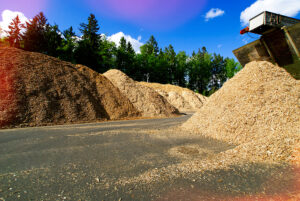IrBEA showcases the importance of various wood drying techniques

Commenting ahead of the first event this week, Seán Finan, IrBEA CEO, said: “Wood fuel drying is a pivotal stage in the production of quality wood fuels. Various drying methods including polytunnel drying, kiln drying and air drying are employed by our members across the country. The techniques used vary depending on wood type, desired moisture content, production scale, and resource availability.”
These free events are open to IrBEA & WFQA members, potential new members, firewood suppliers, forest owners and interested stakeholders.
The aim is to enhance the understanding of wood fuel drying techniques and processes while showcasing the work and contribution of the WFQA and its growing membership.
Noel Gavigan, WFQA auditor, said: “Through these workshops and site visits, participants will gain practical insights on wood fuel drying, interact with industry experts and exchange knowledge. These workshops are designed to assist wood fuel suppliers to meet their moisture content requirements as specified under the Solid Fuel Regulations. These workshops are open to all fuel suppliers and all members. Each event will showcase unique learning aspects of wood fuel production and we encourage participants to attend as many of these events as possible.”
The solid biomass and wood fuels sector is a crucial handler of forestry thinnings and residues. As Ireland seeks to decarbonise energy uses and move away from fossil fuels to renewable energy, solid biomass has the potential to be a significant driver of this change, said IrBEA.
Finan concluded: “The raw material used to produce wood fuels including firewood, pellets and chip and briquettes are sourced from sustainable forest thinnings and residues from Irish forests. The use of dry wood fuels which are renewable, locally grown and produced are a sustainable form of solid fuel which can aid consumers to move away from fossil fuels. Dry wood fuels are critical to reducing air quality issues and maximising energy output.”


















